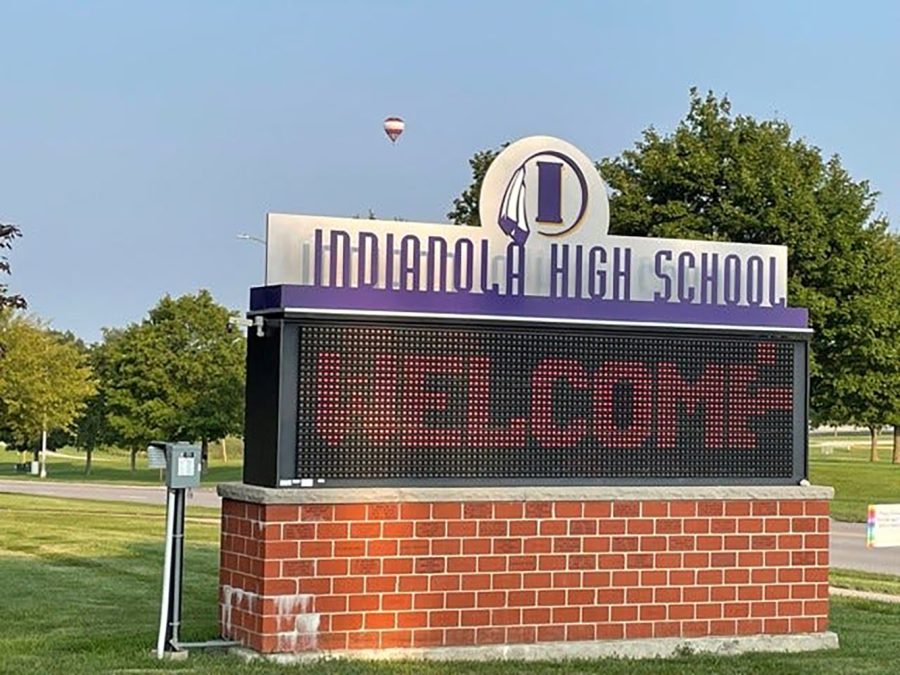Native American communities call for the removal of Native ‘themed’ mascots
Last month, the Meskwaki Nation released a letter calling for the retirement of Native ‘themed’ mascots at 66 Iowa schools.
Teresa Kay Albertson via Imagn C
Indianola High School athletic teams are called the Indians, with a feathered dreamcatcher symbol as its team and school logo. Originating in some Native American and First Nation cultures, a dreamcatcher is a handmade willow hoop on which is woven a net or web and may be decorated with feathers or beads. Traditionally, dreamcatchers are hung over a cradle or bed as protection.
November 17, 2021
The Sac and Fox Tribe of the Mississippi in Iowa, also known as the Meskwaki Nation, penned a letter to 66 Iowa K-12 schools calling for the retirement of Native “themed” mascots in late October.
Iowa schools with Native-themed mascots include the Indianola Indians, Keokuk Chiefs, Waukon Indians, Montezuma Braves, and Spirit Lake Indians. On Monday, the Mason City community school district voted to remove its former ‘Mohawk’ mascot, bringing the number of Iowa schools with Native mascots to 65.
A 2021 study by the National Congress of American Indians found that 1,930 schools across the nation have mascots of Native American themes. The study lists the most common mascots as: “R*dsk*ns, Indians, Braves, Chiefs, and Warriors.”
Kelly Clougher of the Odawaa tribe and President of the University of Iowa Native American Council, said the use of Native “themed” mascots create oppression and caricatures of Native communities.
“I think that the importance of retiring them is to signify that folks are understanding the detrimental impact that Native-themed mascots have on Native communities because of the association of the negative stereotypes they create,” Clougher said.
Lance Foster, vice chairman of the Ioway Tribe of Kansas and Nebraska, said mascots with Native American imagery create the idea that Natives are “cartoon figures” or are inhuman.
“We always get people asking, ‘Are there any Indians left?’” Foster said. “Because Indians in their brain are sort of like ones, riding ponies and shooting arrows at buffalo.”
RELATED: Native American students and community members make an impact in Iowa City
Sikowis Nobiss is Plains Cree-Saulteaux of the George Gordon First Nation, founder of the Great Plains Action Society, and a member of Iowa City’s Truth and Reconciliation Commission. She said there are findings that show the romanticization, tokenization, and stereotyping of Indigenous communities have effects on the development of youth in those communities.
In a 2020 study published by the Race, Ethnicity, and Education Journal, it was found that Native American mascots yield negative psychological effects for Native American students:
- Lowered self-esteem
- Decreased community worth
- Reduced future achievement-related goals
- Increased negative feelings of stress, distress, depression, dysphoria, and hostility
Nobiss said she believes issues of cultural appropriations of other races likely may achieve more public outcry and news coverage due to having larger populations.
“This country has basically defined racial inequality or racism as a Black and white issue and Indigenous peoples are left out of that conversation all the time,” Nobiss said.
Locally, Nobiss said the Great Plains Action Society has been combatting issues relating to the Indigenous community for years by organizing rallies and petitions calling for the abolition of white supremacist monuments, including statues and mascots.
Clougher said some UI students, staff, and faculty wear clothing with Native-themed mascots displayed.
“I do think it’s important that we acknowledge the impact that has on the climate at the university and how it may feel to a Native student to see their professor or peer wearing, say, a Chicago Blackhawks shirt,” Clougher said. “It’s not only based in stereotypes, but it also represents us as people of the past and we are a vibrant, thriving culture. It’s really problematic that it perpetuates the idea that Natives don’t exist.”



